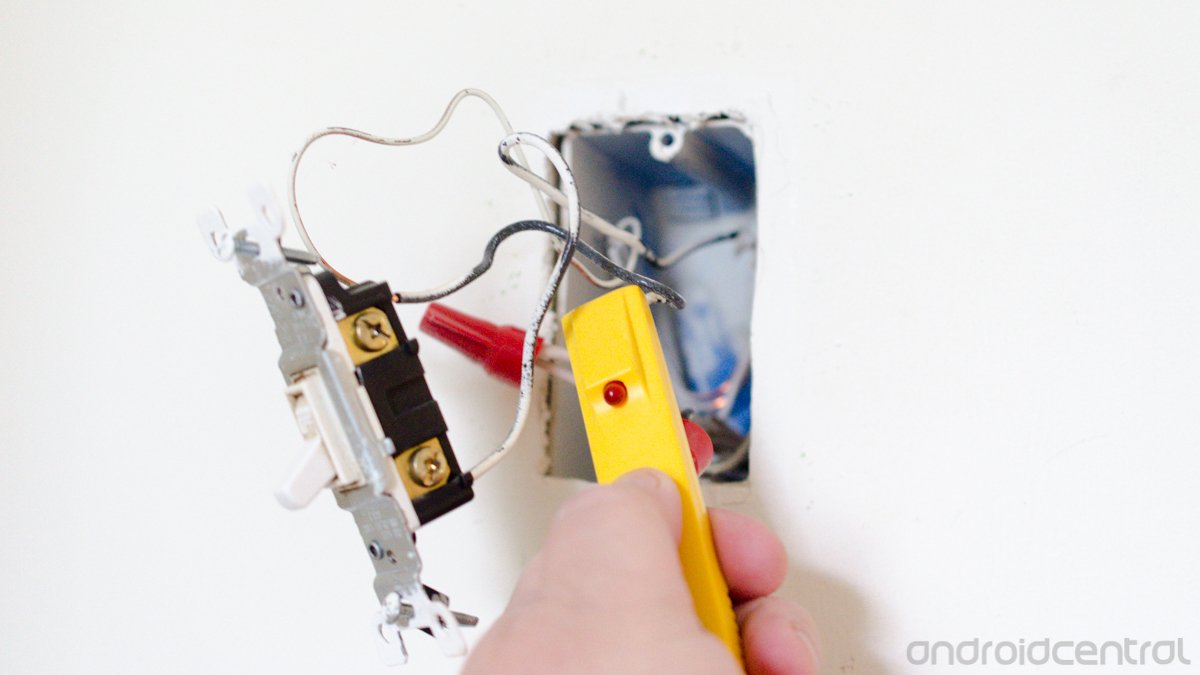Best answer: There are a lot of homes wired before the National Electric Code required every light switch junction box to have a neutral wire. If you live in one, you'll be faced with this issue should you decide to install smart switches in your wall. The good news is that there are smart switches you can use that don't need a neutral wire. The bad news is that they all require the purchase of a secondary bridge or hub to get them "active" on your smart home network.
- The best option: Lutron Caseta Smart Lighting Dimmer Switch ($55 at Amazon)
- You'll need this hub: Lutron Caseta SmartBridge Pro ($110 at Amazon)
- A value pick: Insteon Smart Dimmer ($50 at Amazon)
- You'll need this Hub: Insteon Central Controller Hub ($63 at Amazon)
Smart switches never sleep
There's a reason why almost every smart switch needs a neutral wire attached: it needs to stay powered all the time.
That's what a neutral wire does (in this case); it allows the circuit to be completed and the switch to be powered when you have turned it to the off position to turn off a light. Without one, the circuit is broken when the switch is in the off position and powered when the switch is in the on position. This is because the neutral wire for the circuit is actually in the junction box that holds the light fixture, and the two wires coming down to the switch are the "hot" leg that will power the light.
There's a reason why almost every smart switch needs a neutral wire attached.
Smart switches that work without a neutral wire need to connect through a bridge or hub because of the programming — things like your wireless network details and login — are stored in the hub and not a microcontroller inside the switch. Now is also a good time to recommend that you talk to an electrician before you start pulling out switches or doing anything with the wiring in your home. There's the potential to get hurt, so be safe instead of sorry.
The best switch to use if you don't have a neutral wire depends on what else you might want to make "smart" in your home. Lutron's Caseta system is more expensive, but the hub also works for things like powered window blinds, ceiling fan controllers, wireless "pico" switches that you carry around and even motion sensors. If you plan to use any other Lutron equipment, the extra cost is worth it because you won't need another bridge.
If you only want smart switches, or you already have the rest of your house wired up, you can save a bit of money by going with the Insteon system. The bridge is $40 cheaper, and you'll save money on every switch you buy. It all adds up!
Both choices work with Amazon Alexa, have smartphone apps, and will work with almost any light fixture you have in your home. The biggest difference is the price.
Our pick
Lutron Caseta Smart Lighting Dimmer Switch
Part of a larger system
Lutron's Caseta system is built for more than just light switches and the extra cost can be worth it if you plan to make the rest of your home smart, too.
Also required
Lutron Caseta SmartBridge Pro
Bridging things together
Lutron's Caseta system requires its own bridge to connect everything to your larger smart home network. it's easy to program through your phone and works with Amazon Alexa and Apple HomeKit.
Starting simple
Insteon Smart Dimmer
Value option
Insteon offers a great smart lighting solution with its smart switches and hub. You can use your phone, a keychain remote, and even your voice through Alexa to control your lights.
Also required
Insteon Central Controller Hub
Smart Hub
Insteon's Central Controller is required to use Insteon smart switches and communicates via power lines in Insteon's own proprietary mesh network solution. It's also easy to set up and use, and all your switches will work with Amazon Alexa.





Tidak ada komentar:
Posting Komentar